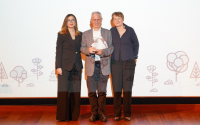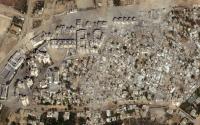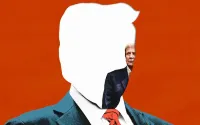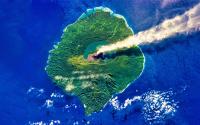Templates of terrorism
9 September 2004International Herald Tribune
Terrorism and the measures adopted against it acquire reciprocal momentum that is all but impossible to stop once a certain threshold has been crossed. That threshold was crossed in Russia last week, with potentially enormous consequences for civil liberties in that country, for civil peace in the Caucasus and possibly for the existing peaceful relationship between Russia and America.This is why issues of nationalism, irredentism and religion - the usual motives for terrorist outrages - are so desperately dangerous. Ignored or misinterpreted, assigned to spurious international causes, they can do immense damage. They have to be dealt with in their natural dimensions.There is a competitive auction in terrorism. Righteously misdirected reactions to terrorism contribute to the dynamics of the terrorist interaction, reinforcing the next outrage, which is constructed to be more horrible than the retaliation suffered for the last one. This is an escalation of terror in which neither side can prevail since the possibilities are unlimited - as demonstrated at Beslan in North Ossetia.Russian President Vladimir Putin has mistakenly (or culpably) assigned an international cause to his crisis. He has followed George W. Bush and Ariel Sharon in identifying his national problem as "international terrorism." This is not true. Putin's terrorism problem is specific to him and to Russia. America's terrorism problem is specific to the United States, its past, its foreign relationships and its policies. Israel's is a matter of Israel's relationship with the Palestinians.The source of terrorism in Russia since the late 1990s has been the ethnic nationalist uprising in Chechnya that Russian authorities have brutally been trying to stop.Today there certainly are international reinforcements fighting for the Chechens, and there are increasing numbers of radical Islamic teachers and clerics in the Caucasus. Like Iraq, the region has become a battlefront in the war of Islamic radicals against the infidels. But to hold them responsible for what has happened in Chechnya is like insisting that "regime remnants and foreign terrorists" are the only ones doing the fighting in Iraq.The affairs retain their national causes, and the only hope of solution remains national. But once the terrorist action-reaction auction begins, it is almost impossible to stop. Russia has already invaded Chechnya twice to "end terrorism," but terrorism simply got worse. Ariel Sharon's entire career has consisted in failed attempts to solve Israel's problem of national existence by brute destruction of what he considers its enemies. The United States invaded Afghanistan and overturned the Taliban government, but the terrorists took to the hills and the country is in political and social pieces. And now there is Iraq.If the terrorist auction has a tangible value, such as an independent Chechnya (if that is what the Beslan terrorists wanted: nobody has yet said what they wanted, assuming that they wanted anything tangible), there is no solution except to give it to them. Everyone knows how to solve the tangible and national part of the Israeli-Palestinian conflict. An acceptable compromise of their national claims was agreed to long ago. The clash of eschatological expectations between some Israelis and some Palestinians is what continues to make that solution impossible.The religious fanatic has no tangible goal to be satisfied. He - or she, as we increasingly find - wants paradise and the destruction of heretics. For such a person, the terrorism auction has no earthly limit.Putin has made a second internationalized interpretation of the Beslan massacre. He implied in his address on Saturday that U.S. activity in Georgia, and elsewhere in the Caucasus, is partly behind separatist forces there and is part of an American effort to disarm Russia as a nuclear power and otherwise weaken it.The collapse of the USSR in 1991 had left Russia defenseless, he said. It had once been invulnerable, with unsurpassed power to protect its frontiers. Now, "we have shown ourselves to be weak, and the weak get beaten." The implication was obvious.Could Putin do anything now other than promise resistance, power, security, repression? Politically, probably not. Is what he said going to do any good? Again, the answer is no. Moscow, and Bush's Washington and Sharon's Jerusalem, have to prove their "resolve"; they can't be seen as "pitiful, helpless giants." Yet until they tell the truth to themselves, or their countrymen tell it to them, that is just what they are.






